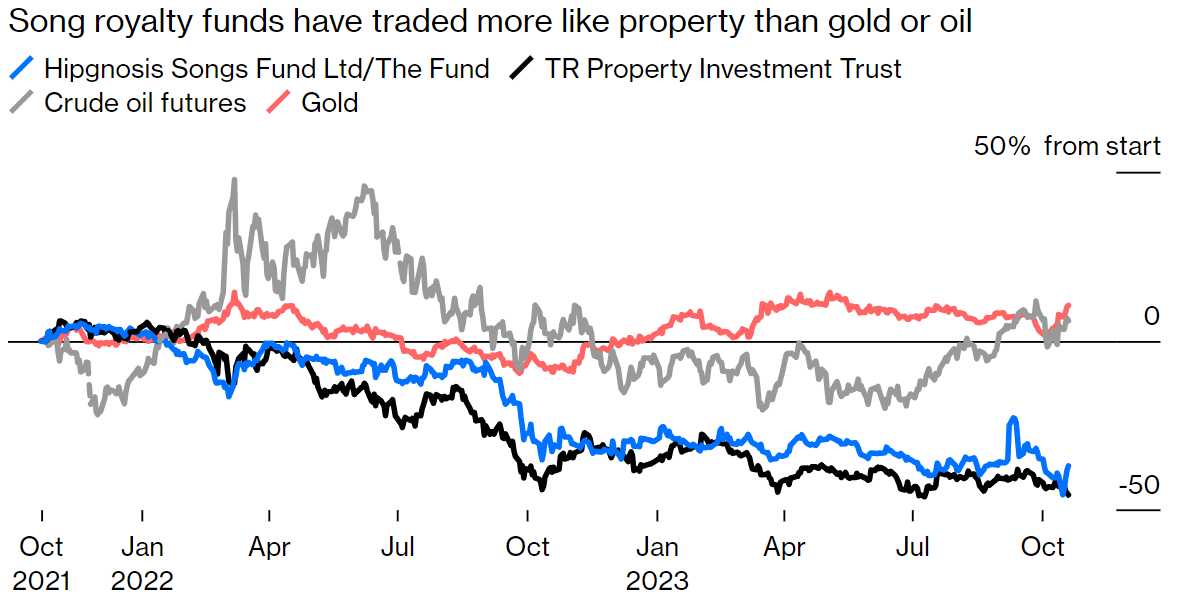
Everyone who knows me well, knows that I grew up with David Bowie as my real-life Hero. I saw him concert regularly, until he stopped touring in the 2000s, and loved the fact that not only did he produce unique music, but nearly every time it was performance and music. He was first to really use video as part of releasing a record (Ashes to Ashes) and constantly reinvented himself and challenged himself.
There’s a classic video of Bowie talking about the internet back in 1999 ...
And one of the first to livestream a concert on AOL in 2004 (I watched it but cannot remember if it was on a dial-up line).
Why blog about this?
Because he also created a new market for monetising music through financial markets. Back in 1997, he created a thing called a Bowie Bond with investment banker David Pullman. Investopedia summarises it well:
- Bowie bonds were a type of bond backed by recording artist David Bowie's royalty streams, and marked the first such security backed by a performer's cash flow potential.
- Bowie used the $55 million raised from the issuance to buy rights to his music from his former manager, which would then in turn generate more royalties to bondholders.
- The banker credited with making this happen, David Pullman, has since issued similar securities from other performing artists.
So the reason I mention this today is because, following in Bowie’s footsteps, other artists have leveraged financial algorithms to make fortune, as summarised in this article by Bloomberg:
Springsteen Shows Private Equity Who's Boss
The article discusses artists who have sold their music catalogues to investment firms. The more their songs get played, the more the fund makes. As Bloomberg focus upon Investment fund Hipgnosis Songs Fund Ltd, they note how the fund is thrilled when their smorgasbord of artistes are played on TV or Spotify, as they make “money from getting musical nudges on TV and generating new interest in old tunes. This, combined with growth in streaming platforms such as Spotify, is why Hipgnosis splashed $2 billion between 2018 and 2021 on music catalogues from Neil Young to Chrissie Hynde.”
But the line that really got me is that they say songs as an investment, is “as good as gold or oil.”
I just love the idea that songs are a commodity. Surely, they’re art?
The Bloomberg article goes on to point out that songs are more like property investments. This is because, whilst gold and oil ride through the bad times well, songs and property does not.
The article states that “the big picture is that music rights have traded more like commercial property than oil or gold, as the above chart shows: Frothy in the good times of easy money, depressed in the bad days of rising interest rates”.
Interestingly, the article also points out that Generative AI may be the saviour or killer of music rights:
“Generative artificial intelligence could boost the value of royalties by creating new rights, or crush them by making music that’s better than the real thing”.
The thing about that statement is that Generative AI is only as good as what it can source and scrape off the network. All the answers on ChatGPT and Bard are just regurgitations of things it has found that humans have written. Now, with all of the catalogues of all of these artists online, the GenAI engines can reproduce any musical genre in a way that might be as good or even better than their source artists.
Ah well, at least, for those artists who have sold their back catalogue to the fund and asset management industry, they can sit back and watch the markets tank whilst playing live gigs for a mint.
Chris M Skinner
Chris Skinner is best known as an independent commentator on the financial markets through his blog, TheFinanser.com, as author of the bestselling book Digital Bank, and Chair of the European networking forum the Financial Services Club. He has been voted one of the most influential people in banking by The Financial Brand (as well as one of the best blogs), a FinTech Titan (Next Bank), one of the Fintech Leaders you need to follow (City AM, Deluxe and Jax Finance), as well as one of the Top 40 most influential people in financial technology by the Wall Street Journal's Financial News. To learn more click here...


